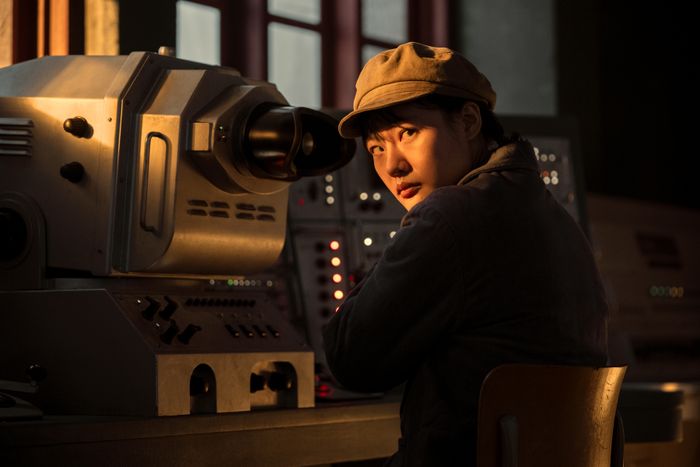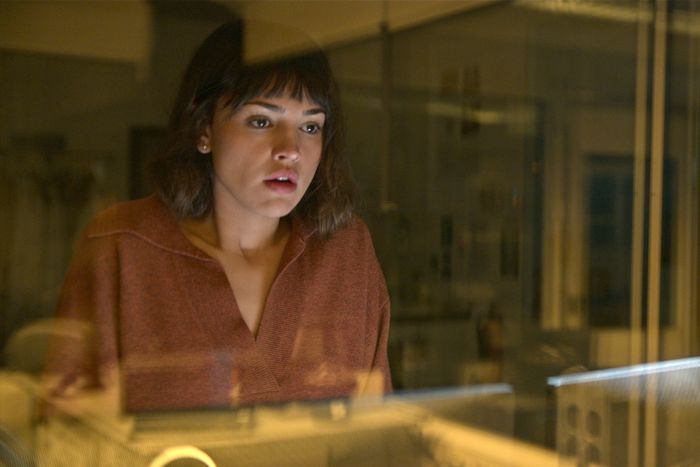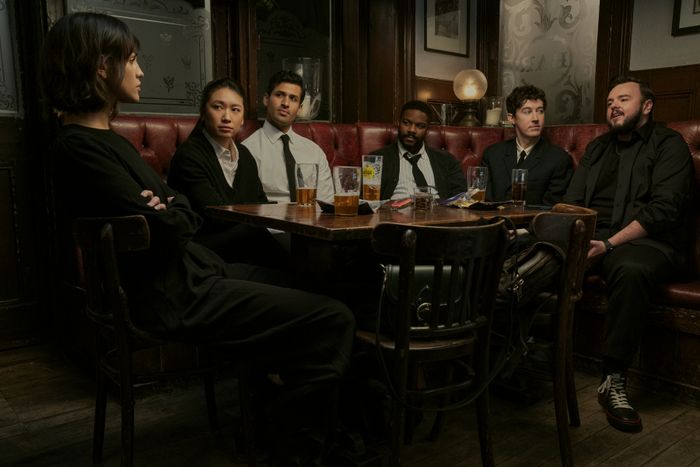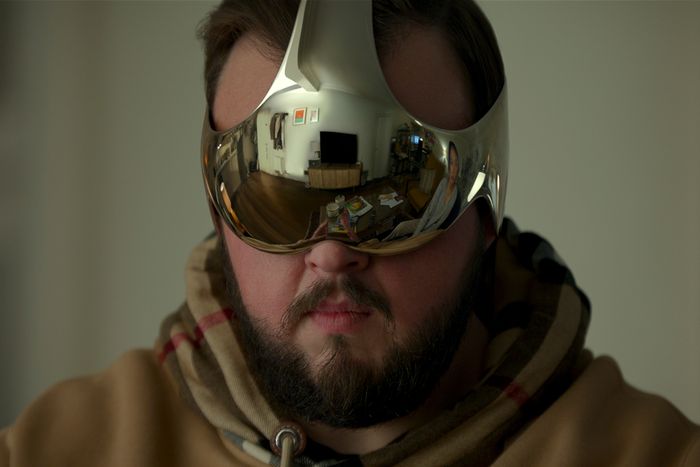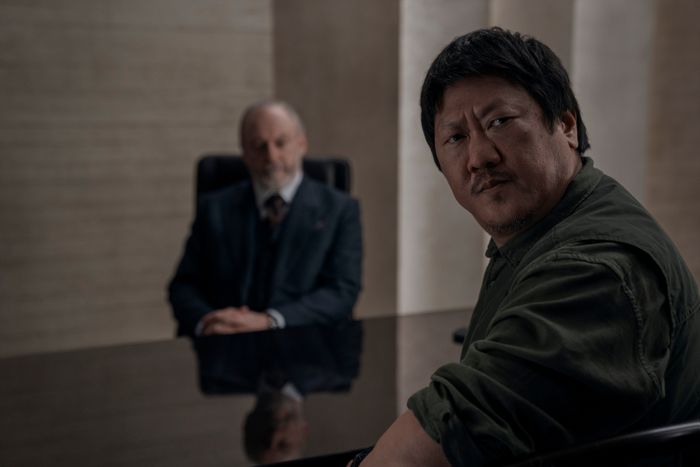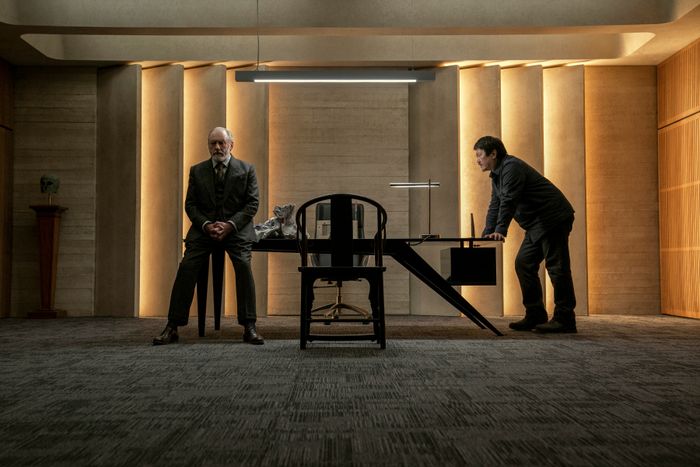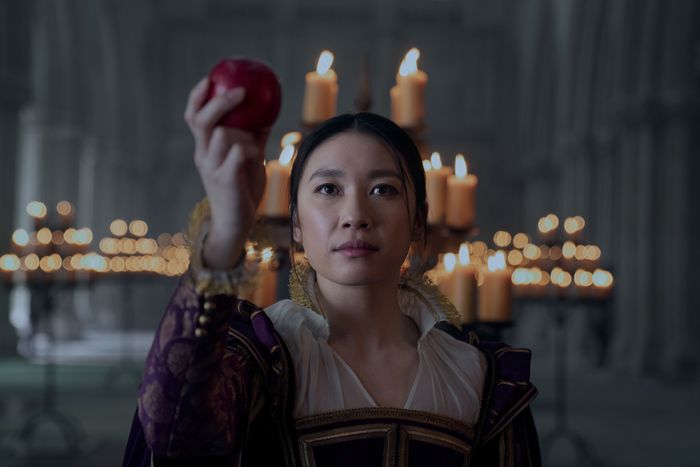
At SXSW (and on the screener accounts of those of us in the media), Netflix has unveiled a look at its next big-budget sci-fi series, 3 Body Problem. Based on an internationally best-selling trilogy of Chinese novels by Cixin Liu, it’s the first project co-created and written by David Benioff and D.B. Weiss since Game of Thrones (Alexander Woo is the show’s third co-creator), so it arrives with a galactic level of fanfare. In its first season, the series has a gigantic scope, covering everything from mysterious conspiracies and a spooky video game to a bunch of other details Netflix would prefer the press not discuss openly before its premiere. (The creators have described it as an alien-invasion epic to The Hollywood Reporter, so I guess we can say that.) Suffice it to say you quickly learn that the fate of humanity is at stake and a bunch of scientists and Benedict Wong may just unravel what’s all going on.
Is the show good? As a reader of the book series, I had a rollicking time and look forward to being able to explain the nitty-gritty details of the plot to first-time viewers. Benioff and Weiss have always excelled at drama built around people explaining politics to one another in rooms, which is in fact a lot of 3 Body Problem’s story, plus some rumination on physics and impressive action set pieces. The creators have made several wise edits to make this track for television, though they’ve also expunged a lot of the novels’ most compelling cultural context and are hampered by a cast of young stars who, let’s say, do not elevate the material. Further details will have to wait until after the show hits Netflix on March 21, but in honor of 3 Body Problem’s SXSW premiere, here’s what we can tell you.
What exactly is going on here?
There are a lot of disparate threads weaving together around a central mystery: Experiments conducted by the world’s foremost scientists are beginning to fail, some of the scientists are dying, and no one is sure why. Benedict Wong’s intelligence officer, Da Shi, is investigating these deaths, though you’re not quite sure who he’s working for, while a set of young scientists in London, nicknamed the Oxford Five (Jovan Adepo, Eiza González, Jess Hong, Alex Sharp, and GOT’s John Bradley), also band together to try to figure out what’s going on. One of them, González’s Auggie Salazar — one of the less believable character names foisted upon me recently — starts to see visions of an ominous countdown clock wherever she goes. Then Hong’s physicist, Jin Cheng, finds an ultra-high-tech VR headset (which Da Shi has also found near dead scientists’ bodies). Put it on, and you enter a game set in a world with a deeply unstable climate you’re tasked to find the pattern behind. It’s called The 3 Body Problem. Duh-duh-duhhhh!
What’s changed from the book?
If you’ve read Liu’s series, a lot of that description will sound familiar, as will the show’s opening set piece: a flashback to Beijing’s Tsinghua University during the Cultural Revolution in the 1960s, where the daughter of a prominent physicist (Zine Tseng plays the young Ye Wenjie) watches her father get killed by Red Guards. Later, she’s sent to a research base in Inner Mongolia, where, disillusioned by humanity’s actions, she makes a crucial decision that is the plot’s true inciting incident. (If you’re familiar with the books, you’ll know exactly what it is, though it’s still fun to see it play out onscreen. And if you’re familiar with the books, you’ll be pleased to know Rosalind Chao plays the elder version of Ye Wenjie. She’s very good!)
Liu’s books are about the long shadow of the Cultural Revolution and how it informs the present-day politics and consciousness of China. The whole “did these scientists get killed or commit suicide?” plot occurs in Beijing in the book, while Benioff, Weiss, and Woo have moved the contemporary setting over to London. That makes sense logistically — a western production might have a lot of trouble filming in China, and a Chinese adaptation of Liu’s books already exists on Peacock — though it means the show loses a certain level of specificity.
Liu writes a lot about alien invasion as an analog to the collision between imperial powers and the peoples they colonized — a driving notion, within the books, is that, given what happened in human history, any encounter between humanity and an alien race with differing levels of technology might inevitably end with one trying to subjugate and/or eradicate the other. Plus, there’s more of a Space Race element than in the adaptation: Whichever nation gets the information about those aliens first might be at a big advantage. Netflix steps away from the geopolitical-infighting side of the story and transplants its action from China to Britain. A version of the show could try to engage with London as a fading colonial power center, but mostly Benioff, Weiss, and Woo treat it as a neutral location where a bunch of people from different backgrounds might’ve all ended up and become friends.
Who are these Oxford Five kids?
In the book, there’s one present-day scientist trying to figure out these deaths. The show makes the smart choice to split him into five people and have them all express different opinions about what’s going on. It works great in theory, though the performances of the Oxford Five actors tend toward the manner of the CW (or Netflix’s less prestigious scripted-TV offerings). González, in particular, struggles to convince you she is deeply conversant in the field of nanotechnology and that she cares about the fate of humanity, which is tough when the show hangs a lot of emotion on her character. It’s too bad, because many of the actors around this crew can easily and effectively convey gravitas and mystery. Wong is great and grumbly, and Chao is haunted yet steely. Also, there’s Jonathan Pryce and Liam Cunningham!
What’s going on with that game?
I won’t spoil the mystery but I will say it’s all very well rendered. The descriptions of the game in the book series are thrilling and goosebump-inducing, and the show manages to pull off that similar this-is-too-addicting-to-log-off vibe. As the characters progress through the levels, you get to see some very awe-inspiring images of fire and ice. Also, Sea Shimooka as an avatar within the game saunters sultrily out at the end of every level to reward players with a bit of information. It’s reminiscent of how much Benioff and Weiss liked to indulge in sexposition on Game of Thrones, but every time I saw her I just went, Slay!
Is the first season an adaptation of the first book?
Mostly yes, though by the latter episodes, Benioff, Weiss, and Woo incorporate material from Liu’s second installment, The Dark Forest. The show is wisely paced for the most part. I’m not sure why it’s being released as a binge when it’s well structured for episodes to drop week by week. They split up the end of the first book between a grand cliff-hanger at the end of the fifth episode and another twist in the finale. If you’ve read the books, you know the scope of the novels expands exponentially as Liu keeps writing. Netflix’s version works around that to cram in as much as possible in the present day, and I imagine the second season will take place about 400 years into the future.
English translations of the book call it The Three-Body Problem but Netflix calls it 3 Body Problem. Why?
Who knows — I assume someone in marketing told them the numeral would get more clicks. In Mandarin, the book is called 三体 (sāntǐ, literally three-body), which is the title of Tencent’s Chinese-TV adaptation and also a phrase you’ll be hearing a lot within the show itself.
Who are these aliens, and what do they want?
You have to watch to find out! (Or read the books, or a Wikipedia plot summary, or future articles on Vulture dot com.)



